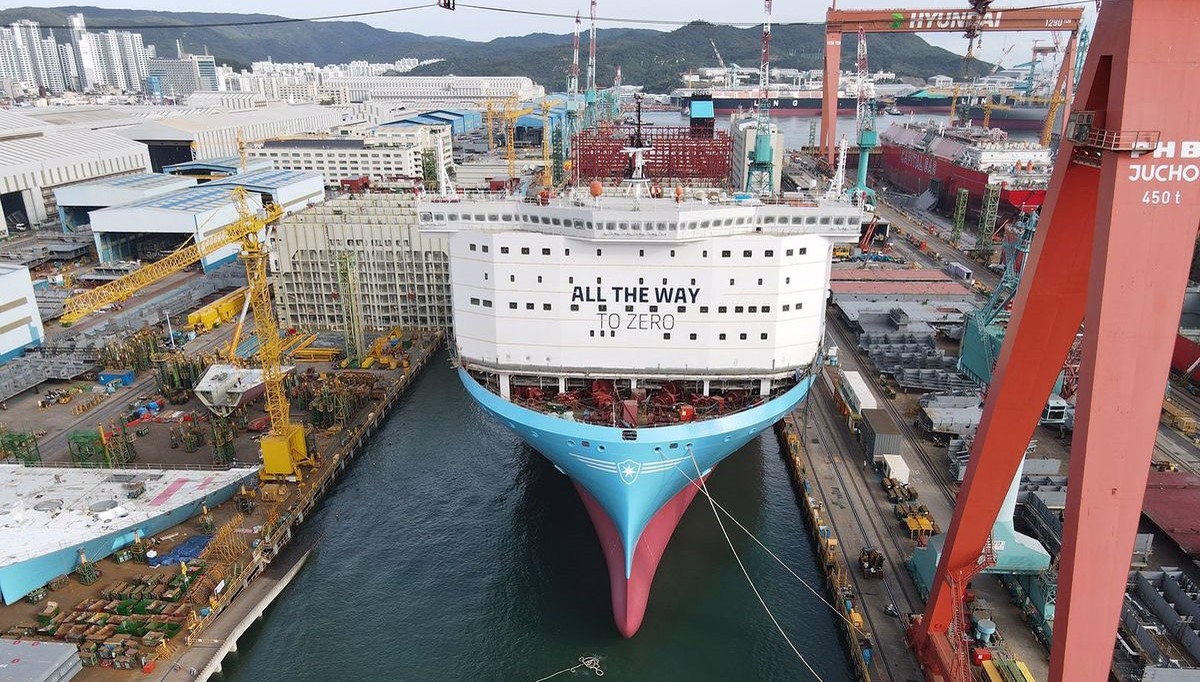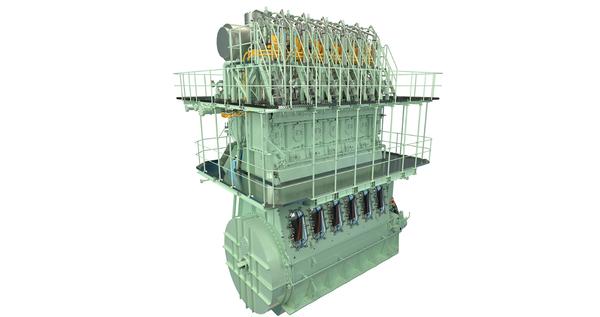Maersk signs green methanol offtake agreement with China’s Goldwind
Danish shipping major A.P. Moller–Maersk (Maersk) will secure 500,000 mt/year of green methanol from Chinese methanol producer Goldwind from 2026.
 PHOTO: A model of A.P. Moller-Maersk’s dual-fuelled methanol container vessel. A.P. Moller-Maersk
PHOTO: A model of A.P. Moller-Maersk’s dual-fuelled methanol container vessel. A.P. Moller-Maersk
Maersk will procure both bio- and e-methanol from Goldwind to power its upcoming fleet of 12 methanol-powered containerships. Eight of the 12 ships are scheduled to be delivered next year, while the remaining four will be delivered in 2025.
Bio-methanol is produced with sustainable biomass as a feedstock to generate syngas. This process requires little-to-no fossil fuel, reducing its overall carbon footprint. However, it emits CO2 and carbon monoxide, which are naturally present in the waste streams.
E-methanol, or synthetic methanol, is produced using 100% biogenic carbon dioxide (CO2) and green hydrogen. The biogenic CO2 is typically captured through either bioenergy with carbon capture and storage (BECCS) or through direct air capture (DAC). E-methanol is virtually free of greenhouse gases and can cut a ship’s CO2 emissions by 95% compared to conventional marine fuels on a well-to-wake basis.
Meanwhile, Goldwind will start producing green methanol at its Hinggan League facility in Northeast China in 2026. It will use wind energy to produce bio-methanol and e-methanol.
“With this project, Goldwind will continue to explore the innovative application of new technologies, pursue the organic combination of green electricity and green fuel production, and optimise the production process of green methanol,” Goldwind’s chairman Wu Gang said.
Maersk navigates towards greener shipping
“The deal significantly de-risks the initial stages of Maersk’s net-zero journey and supports expectations for a competitive green methanol market towards 2030,” Maersk said. “The record-high volumes can annually propel more than half the methanol-enabled capacity Maersk currently has on order.”
Maersk has set an ambitious goal of achieving net zero GHG emissions in 2040 – one decade ahead of the IMO's guided timeline.
To support this effort, it currently has 25 methanol-fuelled container vessels on its order book. In addition, it has signed supply agreements with ten other methanol producers to source over 1.7 million mt/year of green methanol by 2025.
“We are encouraged by the agreement [with Goldwind] because its scale and price confirm our view that green methanol currently is the most viable low-emission solution for ocean shipping that can make a significant impact in this decade,” Rabab Raafat Boulos, chief infrastructure officer at Maersk added.
By Konica Bhatt
Please get in touch with comments or additional info to news@engine.online






